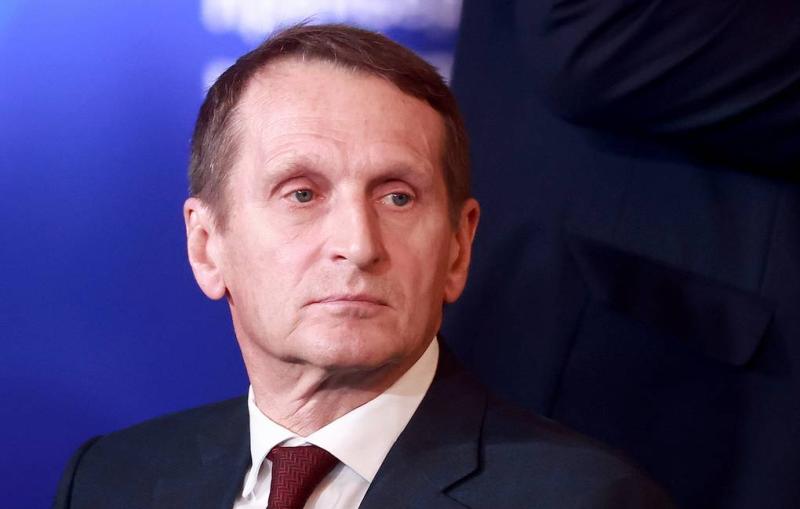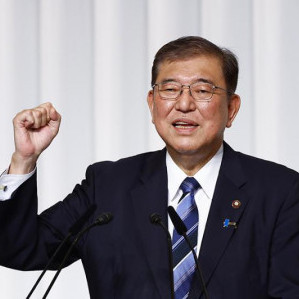
© TASS
November 14 saw Turkey’s capital city host negotiations between Russia and America. This was confirmed by Kremlin spokesman Dmitry Peskov: "Such negotiations did take place, indeed. It happened at the initiative of the American side." Still, the agenda wasn’t disclosed by either Peskov or the Turkish authorities.
Last Monday, CNN and Reuters cited the US National Security Council as saying that a meeting was being held in Turkey between Russian Foreign Intelligence chief Sergei Naryshkin and US CIA head William Burns. This has become the first personal encounter of the two countries’ high-ranking officials since the beginning of Russia’s special military operation in Ukraine. According to CNN, Ankara talks were not meant to embrace this issue, which Washington had warned Kiev about in advance.
Burns visited Moscow in November last year and discussed the conflict, be it noted, despite president Biden’s there’s-nothing-about-Ukraine-without-Ukraine mantra principle.
This time, the CIA has touched upon US citizens imprisoned in Russia, warning about consequences of the use of nuclear weapons by Russia, and the danger of escalation in the context of strategic stability, the media report now.
This is known to have been discussed for a while along the Sullivan-Patrushev track. We can't help but wonder what is Burns’ contribution to the issue? Just another remark beside the point.
With an eye on the murky secret of Ankara negotiations, let’s highlight the growing number of media reports claiming some behind-the-scenes discussions between the two key foreign policy antagonists as represented by Russia and the United States. President Joe Biden’s official stance seeking to isolate Russia stands out in strong relief against non-public talks his administration’s senior officials are having with Moscow. This is not only reported by the American blunder-prone media, but also by the White House official representatives.
Here it should be noted that Moscow has never rejected the idea of negotiating with Washington. Russian President Vladimir Putin has repeatedly said it is the United States who easily renounces any agreements. Hence the lack of trust in the American side. At the same time, there is no way to give up on such contacts, as the stakes are too high. On February 21, a Security Council session saw its secretary Nikolai Patrushev point to the need of conducting negotiations with the West, primarily with the United States, because everyone else will follow suit. It the White House seems realizing the urgence of a dialogue with Russia, too. And it is for this reason that the Americans, on their own initiative, engage with the Russian side, as evidenced by the Ankara meeting between Sergei Naryshkin and William Burns.
As for the topics discussed, Moscow has given no comments on such information until recently. "You know, the fabric of our relations is very thin now. There is no talk about dialogue. But any sporadic, even non-systemic ˗ and there are no systemic contacts ˗ these sporadic contacts cannot be announced in advance," Dmitry Peskov said.
However, Russian Deputy Foreign Minister Sergei Ryabkov said the US-Russian bilateral advisory commission on the Strategic Arms Reduction Treaty regulating the parties’ nuclear warheads and carriers, will meet in Cairo in late November or early December. A whole series of issues is assumed to be discussed over a week. Among them are: inspection resumption and US attempts to withdraw a number of carriers from the treaty ostensibly used for non-nuclear operations.
Indeed, START is vital for both sides, all the more so as they have certain relevant claims against each other. It is also important to move on to a dialogue outlining strategic stability issues after the existing agreement expires in February 2026. So far, there have been no specific agreements between the parties in this respect. But there is definitely a need to work out a new format of dialogue between Moscow and Washington on nuclear stability with due regard to the new bilateral fundamentals.
However, the Russian-American talks are by no means limited to the START Treaty alone. Apart from missiles, the parties focus on the people within the so-called humanitarian framework. In particular, this refers to swapping prisoners like it happened in April to disimprisoned pilot Konstantin Yaroshenko. We still have Viktor Bout and some other Russians kept in jail by the US. In turn, the American side is willing to bring back home athlete Brittney Griner serving a 9-year sentence for drug smuggling, as well as spy Paul Whelan.
Let's not forget about the conflict in Ukraine. Moscow has repeatedly stressed the expedience of discussing it with the United States, not with Kiev. Washington, in turn, claims to be standing by the "nothing about Ukraine without Ukraine" formula. Thus, at a Bali meeting with Chinese President Xi Jinping on November 14, Joe Biden reiterated that "Washington will not negotiate Ukraine’s fate without Kiev itself participating." A doubtful statement, we note, as Washington does discuss the issue with its allies all the time, a sure thing.
Perhaps Russia and the United States are not discussing conflict settlement for Ukraine indeed. At least, this hasn’t been reported or leaked anywhere. Still, The Washington Post recently wrote with reference to some sources that the United States was trying to make Ukraine express readiness to sit and talk with Russia. Moscow, for its part, is publicly urging Kiev to do so. However, the Ukrainian authorities wait for their requirements to be fulfilled first, including a military pullout.
The White House will have to make a decision on Ukraine, as the Americans grow frustrated over Washington’s multibillion-dollar assistance to Kiev, which is the only thing that helps Ukraine stay afloat. The " Ukraine fatigue" is clearly evidenced by the recent frontline events – the Ukrainian forces are obviously running out of steam. And the Russian troops, against all the odds, may launch an offensive even before the New Year and put an end to President Zelensky’s regime.
At which point the United States will have to dust down Moscow’s security demands it put forward back in December last year. After all, it's no secret to anyone that right now, Russia is combating not the armed forces of Ukraine, but the US-led NATO. And whether Washington and Brussels are ready to engage in a direct armed clash with Moscow is hardly an idle inquiry…









